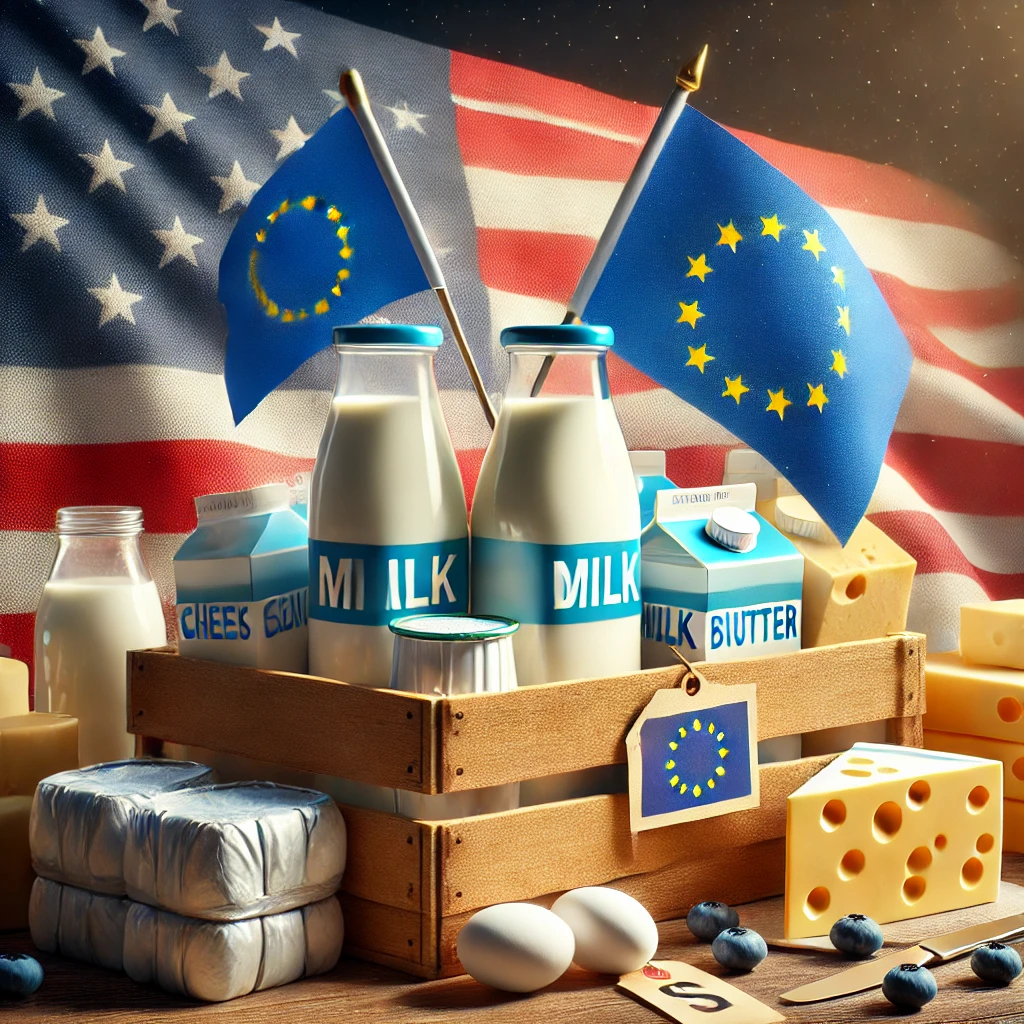In a notable shift in trade strategy, the European Union has decided to exclude dairy products—along with whiskey and wine—from its revised list of retaliatory tariffs against the United States. The decision marks a strategic recalibration aimed at protecting key EU agricultural sectors from escalating trade tensions.
The revised countermeasures come in response to tariffs imposed by the U.S. on European steel and aluminum, and were shaped by strong lobbying from EU member states with significant interests in agri-food exports, including France, Ireland, Germany, and Italy.
Fianna Fáil MEP Barry Cowen, who reviewed the updated list, called the removal of these products a “significant success” for EU lawmakers and governments who advocated for a more measured approach.
“This move will benefit these key industries by greatly reducing the US administration’s focus on them,” Cowen said. “It reflects a smart and unified European response—less economically disruptive, yet still firm.”
Dairy Sector Breaths a Sigh of Relief
Dairy exports are a cornerstone of the EU’s agri-food trade, with global dairy sales exceeding €18 billion annually. The United States is a top-ten market for EU dairy, importing products ranging from high-value cheeses and butters to specialized ingredients used in food manufacturing.
Had tariffs been imposed, exporters across the bloc would have faced significant challenges, particularly in navigating complex U.S. regulatory and distribution systems that already favor domestic production. Many European producers had feared that tariffs could further narrow already tight margins.
A representative from the European Dairy Association (EDA) welcomed the development, stating:
“This decision sends a strong signal that EU trade strategy can be both firm and thoughtful. It protects a key pillar of the European food economy while maintaining diplomatic space for resolution.”
Focused Response, Not Escalation
The EU’s revised tariff list now includes a more targeted group of U.S. goods—such as tobacco, soybeans, orange juice, video game consoles, and textiles—with duties ranging from 10% to 25%. Dairy, spirits, and wine were removed to avoid sparking a tit-for-tat spiral with disproportionate impact on high-value EU exports.
EU Trade Commissioner Maros Sefcovic underscored the importance of dialogue:
“Our preference remains negotiation over escalation. These countermeasures are ready, but our door remains open for constructive talks.”
As EU and U.S. trade discussions continue, dairy exporters across Europe are breathing easier—but remain alert. While this decision avoids immediate disruption, the broader trade environment remains volatile, and continued advocacy will be key in ensuring dairy’s long-term resilience in global markets.
